Home Affairs Minister Byron Camilleri said that he always “takes decisions based on facts,” in response to whether he believes Alexander Dalli is the right person to run the Corradino Correctional Facility.
Dalli has been under fire over the way he runs Malta’s prison, where 13 inmates died in three years. Dalli has faced calls for his resignation, including by the Nationalist Party. The last inmate to pass away was Colin Galea. Following his death last month, the minister appointed an inquiry board to evaluate the internal procedures within the prison. This inquiry is separate from the Magisterial inquiry.
Camilleri said: “I decide on facts, such as on inquiries. In the coming days I hope to have in hand the copy of the last inquiry. I would also have the report of the inquiry that I had appointed. So every time I come to take a decision, I would do so based on facts, as that is my obligation as a minister.”
During the interview, the minister also hinted at certain prison reforms.
“My thoughts are that, in the same way we introduced checks and balances within the Police Force, we would introduce checks and balances in the laws and systems regulating the prison. Through better systems of checks and balances we can provide peace of mind,” he said.
During the interview, he does not believe that the police were holding back from investigating high profile individuals in the past. He was also asked whether an investigation should commence into past commissioners, to see if cases were being left on the shelf.
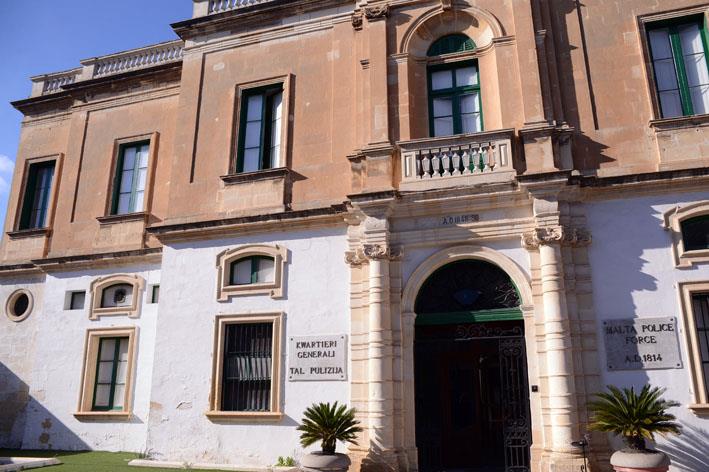
We've seen the police trying to make a push in terms of the fight against financial crime. What kind of manpower does the Police Force have dedicated to combatting financial crime, and do they receive external training?
The financial crimes section saw a 180% increase in human resources. The reality in Malta, Europe and around the world is that crimes are moving from the physical environment to the financial, the digital. Sometimes they would include elements of both. An example would be when hackers stole from BOV. Today those persons, even in another country, with the cooperation of the Maltese police are facing justice.
The officers receive training. People are also joining the Force who would have come out of university, having studied economics, accounts or similar subjects.
Training is always necessary. We are speaking about very complex crimes that are new both for the police as well as the courts. There are times when magisterial inquiries are appointed and others when the police investigate on their own. When looking at magisterial inquiries into such crimes, you can see the complexity of such crimes from the types of experts that are appointed, and the time their reports take. So training is essential, and within the Force training is being given, including to ancillary personnel. Keeping up to date is important, as in a year a lot can change in terms of technology and the financial sector.
The action we are seeing in terms of tackling the alleged big fish seems to be happening now, to a certain extent. As an example, the recent charges regarding Pilatus Bank, but that case, or the issues surrounding it, came about years back. Why did it take so long? Was this a failing of the Financial Crimes Department in the past?
As a minister I am not involved in investigations. So I can speak about this case from the information that we know publicly. There was a magisterial inquiry into this case, it is a complex case, and there was the need for this length of time due to its complexity.
So if a magisterial inquiry that appoints international, knowledgeable experts... if even they took years to establish the elements of such complex crimes, then we surely cannot criticise the police for taking long like that.
This particular case was the subject of a magisterial inquiry and when the inquiry reached its conclusion, the police acted on the inquiry's conclusions.
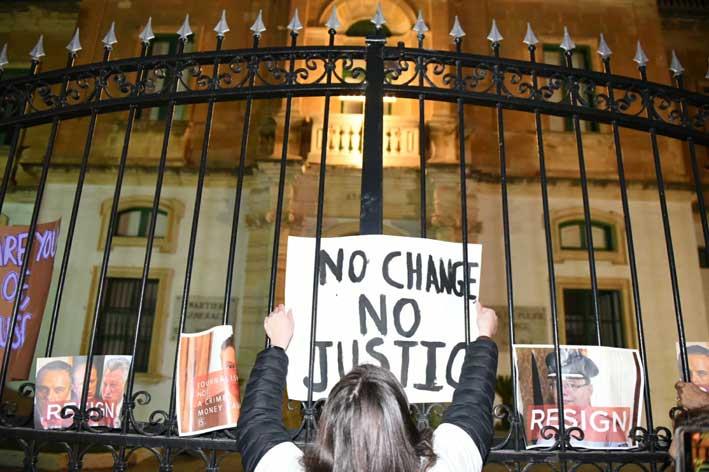
The police were also criticised for allegedly having left cases on the shelf, not doing anything about them. The criticism in this regard was made under a number of past police commissioners. Should an internal investigation be launched to see whether that was the case? If yes, what should be done?
Again, as a minister I am not involved in police investigations. I can only speak about things as they are today as I am the minister responsible today. What I can say is that today, not only I, but the public as well, understand that the Police Force is a serious one. Especially from what we have seen over the last year and a half, one surely cannot say the same about them. So any file there was, that you said was left on the shelf, I think they are going over and are seeing that anyone who needs to be brought to face justice, is brought to face justic
This is a phrase you used many a time, saying the Police Force has changed, worked to improve, but doesn't that imply that the police in the past weren't doing what they were meant to?
No, I am not saying that.
When I became minister, and we began conducting a SWOT analysis of the Police Force before we launched the transformation strategy - through which we were clearer in terms of where we wanted the Police Force to head - I understood that certain criticism was justified, but there was a lot of unjustified criticism particularly as there was a lack of communication.
Today the Police Force communicates more and communicates better. That was one of its major shortcomings. Your legitimate question was, why did the Pilatus investigation take so long? There was a magisterial inquiry. At that time, years ago, the police were criticised unjustly, as the Police Force didn't sit there with hands crossed, but requested a magisterial inquiry. That case went through a magisterial inquiry. I do not think it is a bad thing when one takes time while conducting a serious investigation. It is better to take time and present a strong case to the courts, rather than work haphazardly and have that case fail at the prima facie stage, or not lead to convictions. So I prefer in such cases that the police take their time. On this particular case, again, there was a magisterial inquiry, and so there was unjust criticism.
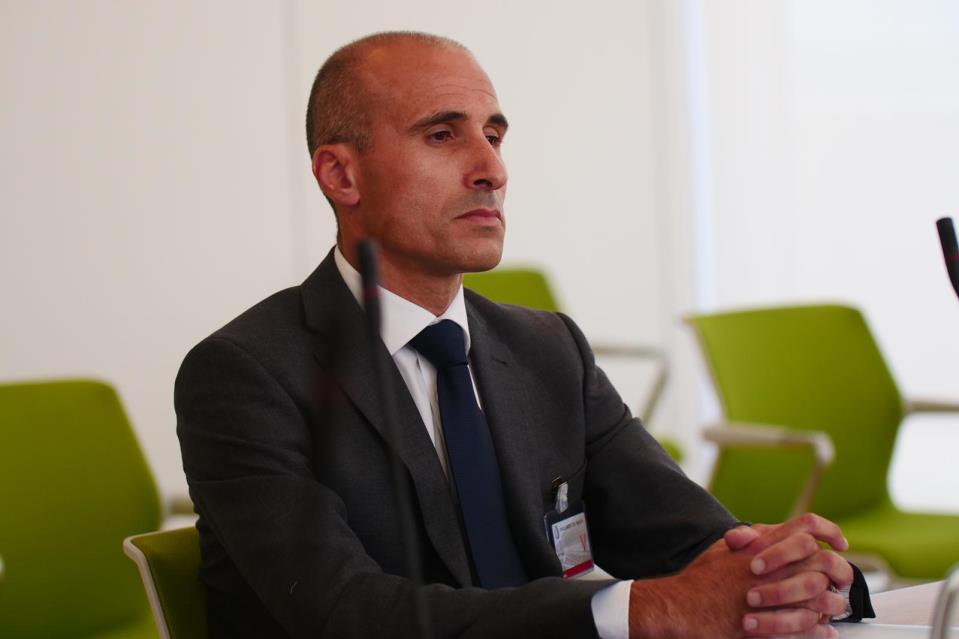
Police Commissioner Angelo Gafa has received quite a bit of praise as police commissioner. He has received some criticism, but there were a number of commissioners in the past who were also criticised. Do you think any of them were not fit for the job?
I don't think it’s up to me to judge. I didn't work with those police commissioners, I only worked previously with Deputy Police Commissioner Carmelo Magri who was acting police commissioner for a time, until I, together with the Prime Minister, changed the way police commissioners are appointed. I understand with regards to those in the past, at times there was criticism. At times today it emerges more than before that it was unjust, while sometimes it could be justified. Everyone faces criticism, including myself and sometimes it is justified, other times not.
I can speak about the year and nine months I have been in this post. I worked with Carmelo Magri for a few months and for the past year and a half I worked with Angelo Gafa as the Police Commissioner.
Going back to a previous question regarding a potential investigation into past commissioners. As the minister in charge of the police, do you personally believe that such an investigation should take place?
When it results that someone did something wrong, it is irrelevant who that person is as it is what a person did that interests me. It is irrelevant if the person is a police commissioner or the average man in the street, and I think that in any case investigations should take place, then it is up to the courts to decide.
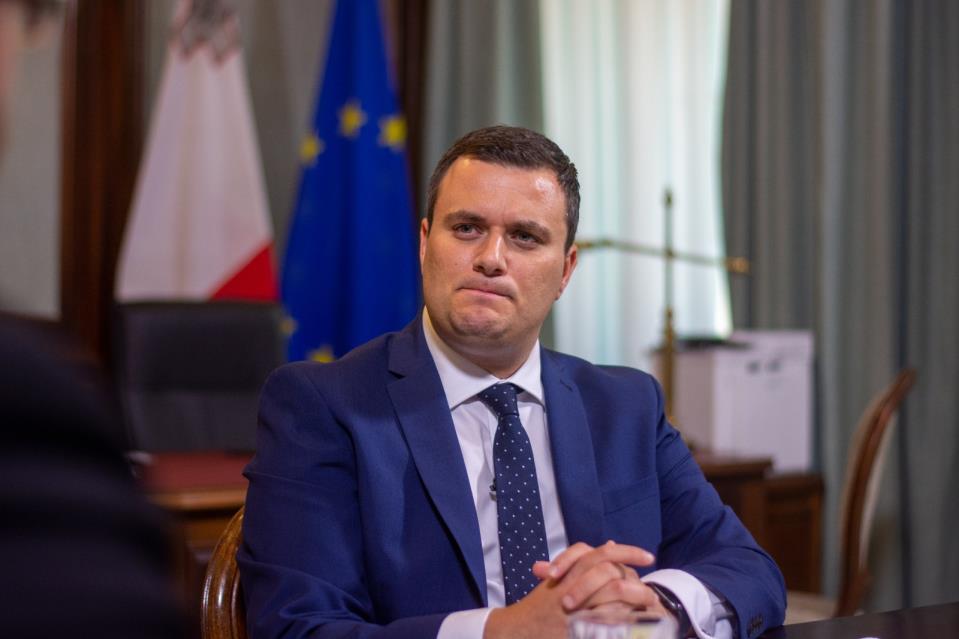
But would you personally want it to be launched?
What I have always done as Home Affairs Minister is that, if on occasion it was brought to my attention that someone, irrespective of who they are, did something wrong, I passed it on to the police. And I believe that is how it should always be. Any citizen who thinks someone did something wrong should ask the Police Commissioner to investigate. That is what I do
One point of criticism in the past was that the Police Force would not act against certain high-profile individuals. Has this changed enough? Do you think that the police were holding back in the past?
I don't think they were holding back, as I understand there were magisterial inquiries.
The fact that there is an inquiry means there is an investigation underway. Then it is up to the police to act on the basis of the conclusions reached by the inquiry. I don't think anyone doubts that this is what happens. We must also make clear that once the police would ask for a magisterial inquiry, that investigation would be taking place.
You launched an inquiry to evaluate prison procedures. Firstly, do you have any expectations for the outcomes of this inquiry and, secondly, some are questioning why it took so long for such an inquiry to be launched, there were 13 suicides since 2018 in prison?
That is incorrect, there were 13 deaths, but it doesn't mean that they were 13 unnatural deaths. Last year there was one suicide and this year two. Yes, I do worry when such things happen.
I was the one who asked for a separate inquiry to determine what could be done better, what needs to change and what is good and can be further improved.
One must understand where we left off, where we are today, and where we want to go.
We started with a prison that was a jungle, a free-for-all. The stories that used to emerge in the past confirmed this. There was a court decision, the famous queen of the prison, and the court back then confirmed how the law of the jungle reigned, where prisoners could rule over other prisoners. That is not acceptable.
Today there is order. Because there is order, we can focus on the rehabilitation of people. I am convinced that the people agree that prisoners need to be rehabilitated. Rehabilitation can be built on order, not on disorder.
Rehabilitation began. There are professionals, and medical professionals who do their job, but this also happened at a time when there was an increase in the prison population. The prison population over the last two and a half years exploded. So that is not enough, but we can build more rehabilitation processes through order.
We will soon announce new methods with regard to how there can be more checks and balances, and in the budget we will reveal rehabilitation processes that I believe the prison system will see for the first time.

Some people argue that the person running the prison, Alexander Dalli is too militaristic, and we have seen allegations that he is using punitive treatment. Have you spoken to him about the situation?
I have an obligation to discuss with Alex Dalli as he is the head of an agency that falls under my responsibility. In prison today there is more order. There is a better base on which we can build. I expect there to always be checks and balances.
My thoughts are that, in the same way we introduced checks and balances within the Police Force, we would introduce checks and balances in the laws and systems regulating the prison. Through better systems of checks and balances we can provide peace of mind, including over how the Prison's Monitoring Board operates.
Another is to introduce a welfare officer, who would not only be obliged to ensure that what you said does not happen, but if the officer would notice something happening that shouldn’t be, can go before the Monitoring Board for a decision.
Given the concerns regarding Alex Dalli, as the person who runs the prisons, and here I point out that there have been calls for his resignation including by the Opposition, do you still think he is the right person for the job?
I always said that I take decisions based on facts. I will do the same today. I take decisions on facts, not speculation.
At times there was speculation. I decide on facts, such as on inquiries which conclude for example. In the coming days I hope to have in hand the copy of the last inquiry. I would also have the report of the inquiry that I had appointed. So every time I come to take a decision, I would do so based on facts, as that is my obligation as a minister.
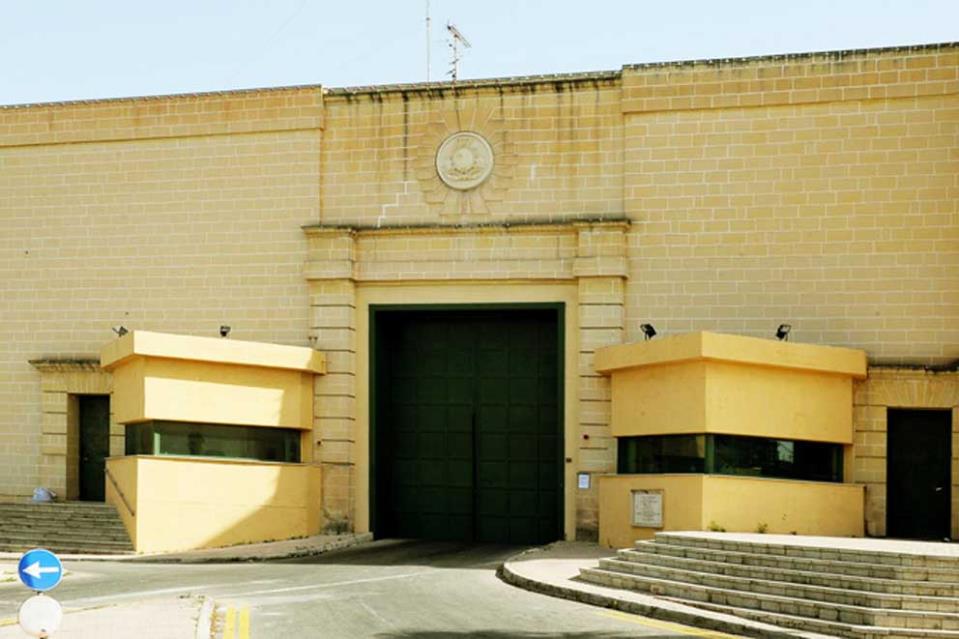
Shouldn't this inquiry have come about a few years back, when the allegations regarding Dalli began surfacing?
I take my decisions based on facts.
if an inquiry regarding an allegation finds that the allegation isn't a fact, then there would be no action to take. For example, a few months ago there was a prisoner who made a number of allegations. The feedback I received was that they were probably not true. He had made a request in court, which it did not uphold. I had gone a step further and asked the Monitoring Board to also review the allegation.
The Monitoring Board looked into the case. The allegations were found not to be true. Imagine if I had taken a decision that day.
So again, I take decisions based on facts. My story over the past year and nine months I have been in this ministry shows that I do take decisions.
I felt there was need for this inquiry as it was the first moment that showed there might be something wrong. So I asked for this inquiry which is separate from the magisterial inquiry, in order to assure that if there is a need for change, that change will be made, and it would be done on the basis of the recommendations of professionals, on whom I don't think anybody doubts their knowledge of the sector.
You mentioned overcrowding in prison. How do you intend to tackle that issue? Do you have any idea as to the way forward?
There should be three levels within our prison system. The first is electronic tagging. The second is low or lower security prisons. The third level is a high security prison.
One of the problems we currently have is that, unfortunately, everyone is in the same boat, from the biggest criminals to a person who is in jail but likely doesn't have a criminal character.
These people mix together, which I don’t think is a good thing.
You have a few dangerous persons who Correctional Facility workers will themselves tell you that they need to be careful around at all times. Then you have people who aren't dangerous. We need to make a distinction between these people and the crimes they would have committed.
Electronic tagging would be able to be ordered by the courts for people who would have been handed down an effective prison sentence of one year or less for crimes punishable by not more than two years. We are speaking about persons who I don't think are a danger to society. We are including certain exclusions to the use of electronic tagging for certain offences, such as in cases of domestic violence, gender-based violence, among others.
So for those eligible, the court would be able to order electronic tagging instead of sending someone to jail for a year or less, and they would serve that sentence in their own home. They might require the person to remain locked up in their home the whole time, or would permit that the person could go to work or university as well for example. In this way we believe it can help better with their rehabilitation.
It will also help with the prison population issue, but this also by the creation of lower or low security prisons. We already have the Rise project, which is exceptional, where there are a number of people nearing the end of their sentence living in a house. The idea is for an open door policy, with strict regulations. If they risk breaking the rules, then the person would go back to jail.
We can have other types of low-security prisons, which can also be within the prison itself, where in such zones or buildings we can have a reduced ratio of prison warders to prison population, and they can be replaced by people coming from the rehabilitative and medical side of things. In this way we will also continue helping in terms of rehabilitation.
The reality remains, however, that you would need a higher-security prison, as we know of cases where, for example, the police ended up having a shootout in the street in order to arrest certain people.
More information will be revealed in the coming budget.